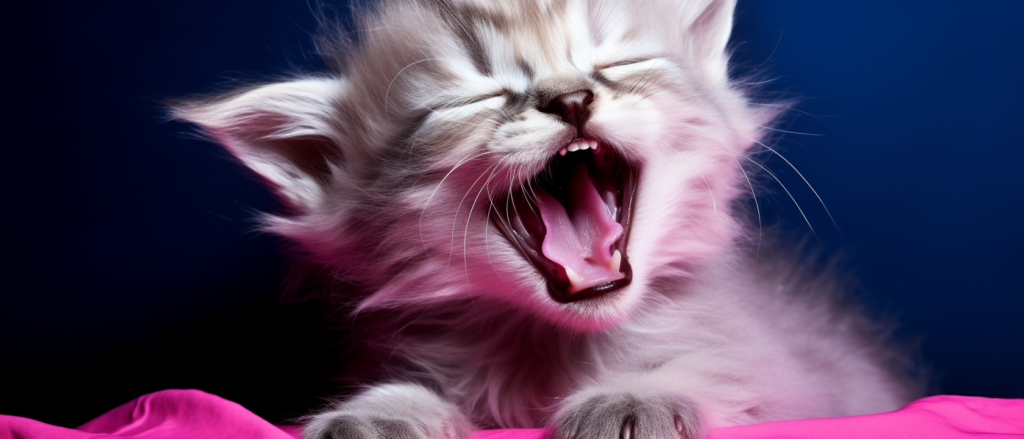In the automotive sector, some engineering teams have developed driver monitoring systems (DMSs) that attempt to detect the driver yawning as a proxy for drowsiness. This is not only ineffective, but likely increases the risk of an accident due to drowsiness.
Yawning is commonly associated with someone being tired or bored. However, recent research tells a more nuanced story, and there are still competing theories on why humans (and other animals) yawn. Nonetheless, it has been decisively established across decades of research that yawning is not a good indicator of drowsiness.
Why do people yawn?
All vertebrates yawn, including fish, birds, and mammals. A human fetus begins yawning after about 20 weeks of gestation. Below are the five main reasons a person may yawn.
 Sleepiness and boredom: You can yawn when you become bored. If an activity does not sustain your attention, you may yawn as an arousal reflex inducing you to wake up and increase alertness. The act of yawning elevates your heart rate. Many people yawn while driving on an open stretch of road and understimulated. This is not a safety risk. On the contrary, it is a sign that they are actively maintaining vigilance.
Sleepiness and boredom: You can yawn when you become bored. If an activity does not sustain your attention, you may yawn as an arousal reflex inducing you to wake up and increase alertness. The act of yawning elevates your heart rate. Many people yawn while driving on an open stretch of road and understimulated. This is not a safety risk. On the contrary, it is a sign that they are actively maintaining vigilance.
Pressure equalisation: Yawns occur both voluntarily and involuntarily to equalise pressure with the outside environment during rapid elevation change such as an airplane taking off or landing.
Social empathy: Yawns may be some form of social signal. They are contagious. If you see another person yawn or you think about yawning (such as by reading this), it can inspire you to yawn. Interestingly, only three species yawn contagiously: humans, chimpanzees, and wolves (including the sub-species dogs). People with greater empathy as measured by the Interpersonal Reactivity Index are more likely to yawn when observing others yawn. Conversely, people with psychopathic traits are less likely to do so. There is also evidence that we are more likely to yawn in empathy with family members and close friends. This tendency has been observed in chimpanzees as well.
Brain temperature: Some theorists posit that yawning is used to cool the brain, although this has issues as a universal theory. First, yawning cannot be triggered by overheating people in a laboratory. Second, it is seldom observed amongst people engaging in intense exercise on a hot day.
Medical issues: Some medical problems can also cause yawning including a range of brain and heart conditions, as well as various sleep disorders or medications.
Myths about yawning
People do not necessarily go to sleep soon after yawning. On the contrary, many people yawn for some time after they wake up as they gear up for the day. Their car should not annoy them with loud alerts every time they yawn themselves awake on their morning commute. They may continue to yawn at all hours throughout the day while still many hours away from sleep.
People often go to sleep without yawning. Eyelid movements offer far more information about the likelihood of someone involuntarily going to sleep soon.
If someone is not yawning, it is not safe to assume they are alert. As noted, many people go through the various stages of drowsiness all the way to sleep without yawning. One study found that in people with sleep apnoea, the absence of yawning is a strong indicator of daytime drowsiness.
Problems with a DMS detecting yawns
 If a system sounds an alert every time the driver yawns, it will inadvertently train them to avoid yawning. Given that yawning is an arousal reflex, this disarms the driver of a very powerful tool they have to fight the progression of drowsiness. Such a system thus inadvertently increases the risk of crash due to drowsiness!
If a system sounds an alert every time the driver yawns, it will inadvertently train them to avoid yawning. Given that yawning is an arousal reflex, this disarms the driver of a very powerful tool they have to fight the progression of drowsiness. Such a system thus inadvertently increases the risk of crash due to drowsiness!
In addition, yawns are difficult to distinguish from other actions like enthusiastic singing, yelling, or a stifled sneeze. A vehicle that sounds a loud annoying alert every time the driver widely opens their mouth is going to result in them disabling the safety system. Again, this increases the risk of an accident.
The conclusion is simple: No DMS should respond to yawns. They are a poor indicator of drowsiness.


